Estate planning is about more than wills and inheritance. A binding financial agreement (BFA) can act as a planning [...]
You’ve separated and are thinking about heading back to the family home in Australia. It’s not just a matter of throwing your stuff in a suitcase, though. Both you and your ex have rights to the house until you’ve sorted out a legal settlement. Before you even think about moving back in, you should get your head around occupancy orders and how they could impact your situation. Getting some legal advice isn’t just a good idea; it’s a must to help you through this maze. Now, if there’s been any family violence, that’s another kettle of fish entirely. And what about family law proceedings? How do they play into your options? Let’s dive into these questions so you can figure out your next move.
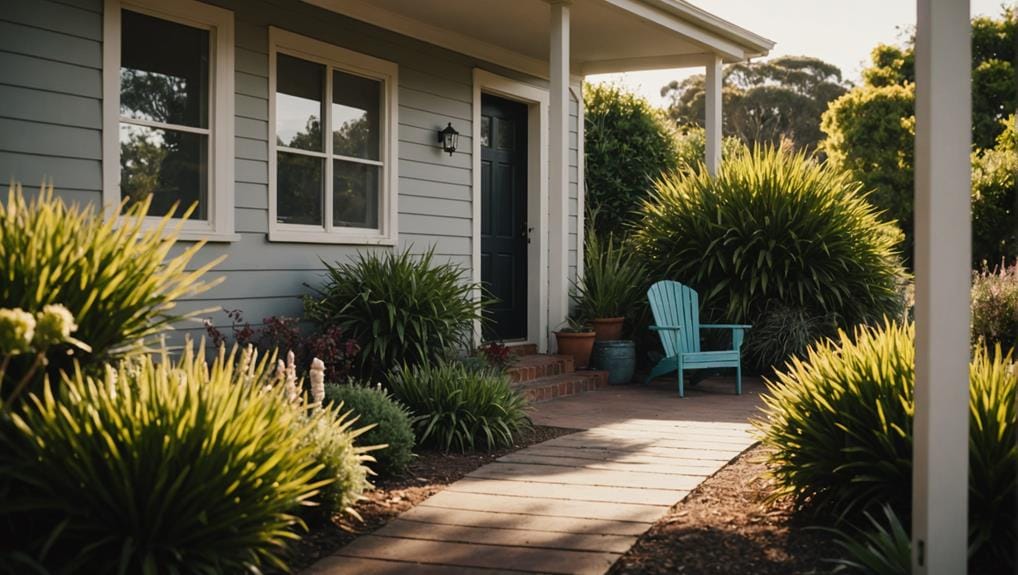
Understanding Your Rights and Options After Separation
Navigating life after a separation can feel like trying to find your way in a maze, especially when it comes to what happens with the family home. But don’t worry, you’ve got rights here. You can stay in the house until you sort out who gets what. If things get tricky, the family court can step in with an order to sort out who stays put for now. It’s all about getting your head around how these court orders work and what your entitlements are when it comes to property. This kind of knowledge can make the whole transition a bit smoother. Imagine it like having a map when you’re a bit lost—it’s not going to solve everything in one go, but it’s a huge help.
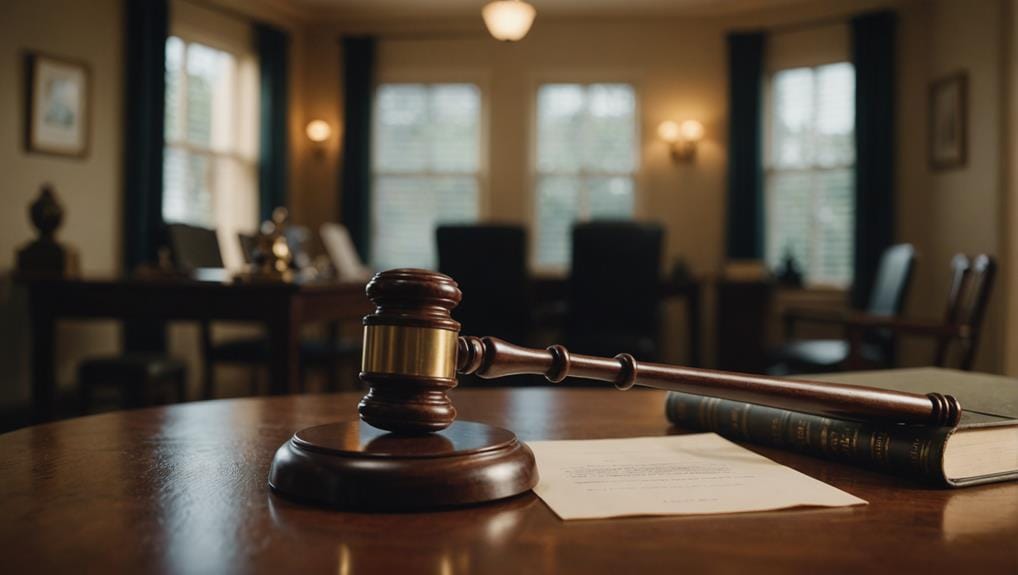
What is an Occupancy Order and How Does it Affect My Situation?
If you’re considering returning to the family home after a separation, an Occupancy Order can significantly shape your options. This type of court order states who has access to, and can live in the home and often grants one person the exclusive, or sole right to live in the home. Courts may issue these orders for both married and de facto couples, particularly when there are safety concerns involved.
In family law, securing a sole occupancy order can be challenging and should not be used as a tool for leverage in disputes. Whether you’re thinking of applying for or contesting an occupancy order, understanding how it applies to your situation can help you decide on the best course of action.
Understanding the Purpose of an Occupancy Order
So, let’s chat about Occupancy Orders in Australia. These are pretty important, especially when people are going through a separation and things like family violence or child welfare are in the picture. Basically, an Occupancy Order lets someone have exclusive rights to live in the family home, which can be a big deal when you’re sorting everything out during a split. It’s all about keeping safe and secure, rather than who actually owns the place.
Imagine you’re in a tricky situation with family violence involved; having an Occupancy Order can make sure you or your kids are safe by letting you stay in the home. Or, if you’ve got kids, these orders help make sure their best interests are front and centre, even if it’s just for the short term.
Getting some legal advice is key here. It can help you navigate the ins and outs, because these orders can change who gets to live where, at least for a while. It’s not about who owns what, but rather, making sure that everyone stays safe and sound.
How to Apply for an Occupancy Order
Applying for an occupancy order, especially when you’re going through a separation, can be really important for keeping things safe and stable at home. To get exclusive rights to live in the family home, you’ll need to put in a request with the family court. Here’s a bit of a rundown on how to go about it:
- Make sure you’ve got some evidence handy if there are any safety worries, like if there’s been domestic violence. It’s a tough thing to go through, but having details like police reports or witness statements can really help your case.
- If there are kids in the picture, you’ll want to talk about their wellbeing too. Think about what the kids need, like staying close to their school or keeping routines as normal as possible.
- And don’t forget, chatting with a legal advisor can be a big help. They can guide you through the process and make sure you’ve got everything covered. It’s like having a roadmap when you’re heading somewhere new.
Impact of an Occupancy Order on the Family Home
If you’re dealing with a separation, it’s really important to get your head around what an Occupancy Order means for the family home. Basically, it gives one person the right to live in the house on their own, which can definitely shake things up in terms of who gets to be there and when. It’s not about who owns the place, but more about who can stay there for the time being. So, if you think you might be able to just pop back in whenever, think again—ignoring the order can land you in hot water legally. It’s a bit like getting a parking fine for being in a no-parking zone; you might not agree with it, but it’s best to know your options and keep things above board.
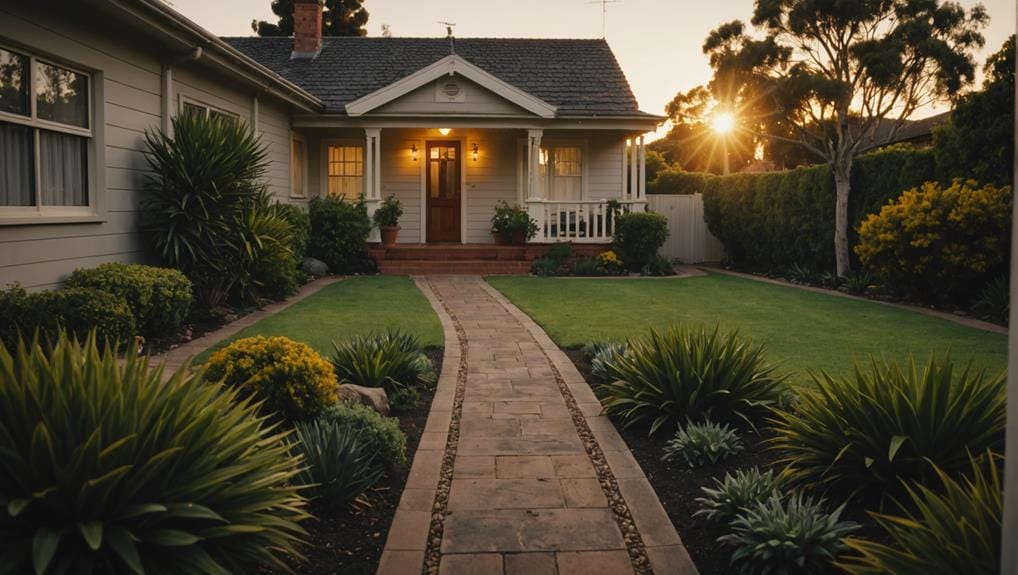
Do I Have Legal Rights to Return to the Family Home?
In Australia, whether the house is in your name or your partner’s, family law usually gives both of you the right to stay in the family home until you sort out a property settlement. But before you decide to pack your bags and return, it’s a good idea to check if there are any legal restrictions like court orders that might affect your rights. It’s a bit like making sure you know the rules before jumping back into the game. Having a chat with a legal advisor can really help you get a grip on where you stand and make sure you’re doing everything by the book if you’re thinking about moving back. Plus, they can guide you through any tricky bits, so you’re not left in the dark.
Exploring Your Legal Rights Under Family Law
Navigating your legal rights under Australian family law can be a bit daunting, especially if you’re thinking about moving back into the family home after separating. Generally, you can head back to the property unless there’s a specific family court order saying you can’t. If your ex decides to change the locks, it might be a good idea to have a chat with a lawyer.
- Check any legal orders you might have
- Let your intentions be known, but keep it respectful
- Always think about your safety first
For example, if you’ve been away for a while and are planning to return, make sure you know if there are any court orders that could affect your move. And if you find yourself locked out, don’t just try to break in; instead, before getting a locksmith or just breaking in, get legal advice to help you figure out the best steps to take. Remember, keeping communication open and being mindful of everyone’s safety is key.
What if the Property is in Your Name?
Owning the place doesn’t automatically mean you can just stroll back into the family home after a split. Legally, you can return unless a court order says otherwise. Both of you may have an interest in the marital home and what’s inside until you sort out the property settlement. Changing the locks may just make things worse. It’s a good idea to get some legal advice so you know what your rights are and can handle any sticky situations. For instance, if things are getting a bit heated, a lawyer can help you figure out the best way forward without adding more fuel to the fire.
What if the Property is in Your Partner’s Name?
Thinking about heading back to the family home when it’s in your partner’s name? It can feel a bit daunting, can’t it? But don’t fret, you may have some rights here to reside in the property. In family law, where both parties have made contributions, directly or indirectly to the marital home, you both may have the right to live there until you’ve sorted out the property settlement. Just make sure there’s no court order stopping you from returning. Here’s what you might want to consider:
- Maybe have a chat with your partner and look into getting a consent order. It’s a good way to get everyone on the same page.
- If things are a bit tense, you might need to apply for a sole occupancy order. This could help if you think living together isn’t feasible.
- And don’t forget to get some legal advice. A good solicitor can really help you navigate this.
Steps to Take Before Deciding to Move Back into the House
Before you make the big decision to move back into the family home, it’s a good idea to sort out your legal rights and have a good look at the situation. It’s super important to chat with your ex-partner so that you both know what’s what and avoid any awkward misunderstandings. Make sure there aren’t any exclusive occupancy orders hanging around that could mess with your plans. If there’s been any trouble like domestic violence in the past, it’s wise to have a chat with a legal expert to make sure everything’s safe and sound. And don’t forget to jot down any agreements you make. It helps keep things clear when you’re heading back home.
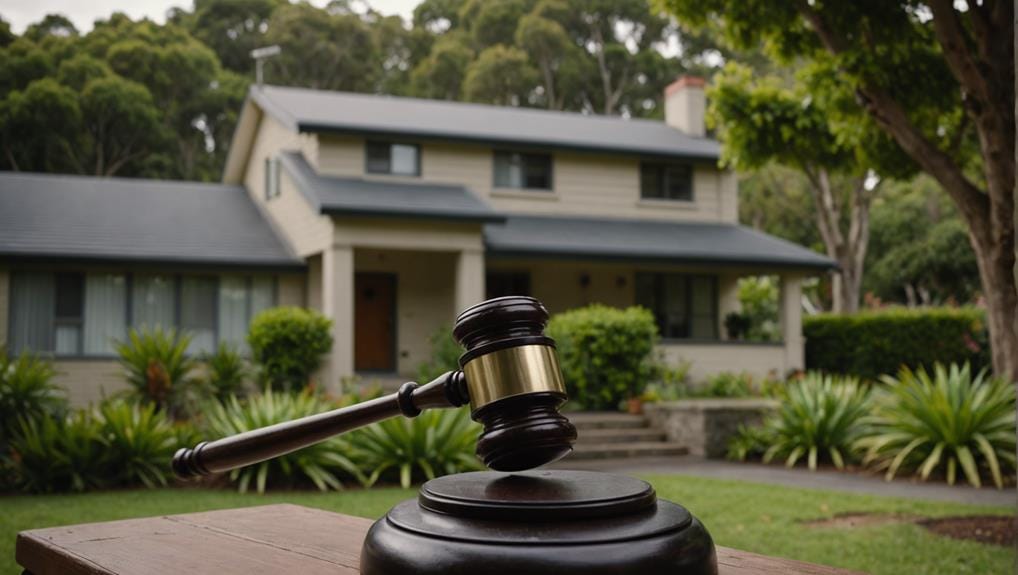
How Can Family Law Help in Resolving Property Settlement Issues?
When you’re dealing with property settlement issues after a separation, family law is there to help ensure things are sorted out fairly. Getting a good family lawyer can really make a difference, as they’ll help you understand what you’re entitled to and steer you through the whole process. Plus, there’s mediation and family dispute resolution, which are great for working things out without having to go to court. For example, maybe you and your ex-partner can’t agree on who keeps the house or how to split up the savings. Through mediation, you might find a middle ground that suits both of you. It’s all about reaching a compromise and keeping things as friendly as possible during a tricky time.
The Role of Family Law in Property Settlement
When you’re going through a separation, it can feel like you’re trying to untangle a mess of spaghetti, especially when it comes to sorting out property. In Australia, family law steps in to help with all this. The family court can actually step in and make decisions about who gets to stay in the family home, making sure things are as fair as possible. Here’s what you might want to think about:
- Sole Occupancy Orders: This is basically where the court decides who gets to live in the family home. So, if you’re in a situation where you can’t agree, the court can help sort it out.
- Equitable Division of Assets: This doesn’t mean everything gets split down the middle, but rather, things are divided in a way that’s just and equitable. So, if one person has been the main breadwinner, or if someone’s been staying home to look after the kids, those things get taken into account.
- Legal Documentation and Mediation: It’s not all about fighting it out in court. Sometimes, having a chat with a mediator or getting the right paperwork in order can make things smoother and less stressful.
Engaging with an Experienced Family Lawyer
Sorting out property settlements after a breakup can be really daunting, which is why having a seasoned family lawyer on your side is super helpful. They can guide you on how to handle property settlements and make sure you’re aware of your rights without all the legal jargon. Plus, they can help sort out who gets to stay in the house, so you can avoid any awkward standoffs with your ex. Their know-how ensures you’re clued up about where you stand legally, which can make it a lot easier to reach a fair solution without too much hassle. For example, they might help you work out how to fairly divide the family home or manage shared debts, which can make the whole process a bit less stressful.
Importance of Mediation and Family Dispute Resolution
After having a chat with a family lawyer who knows their stuff, you might see mediation and family dispute resolution as a pretty good way forward for sorting out property settlements. Jumping into these processes can really help you:
- Sort out disagreements in a friendly way, so you keep talking to each other.
- Get things sorted faster, which means you save a fair bit of time.
- Put together legally binding agreements for property settlement.
In the end, mediation can make things clearer and cut down the chances of more arguments later on. It’s a decent alternative to going to court, especially if you want to avoid the hassle and keep things a bit more personal. For example, if you’re trying to decide who gets the family home or how to split up shared savings, sitting down with a mediator can make those tricky conversations a bit smoother.
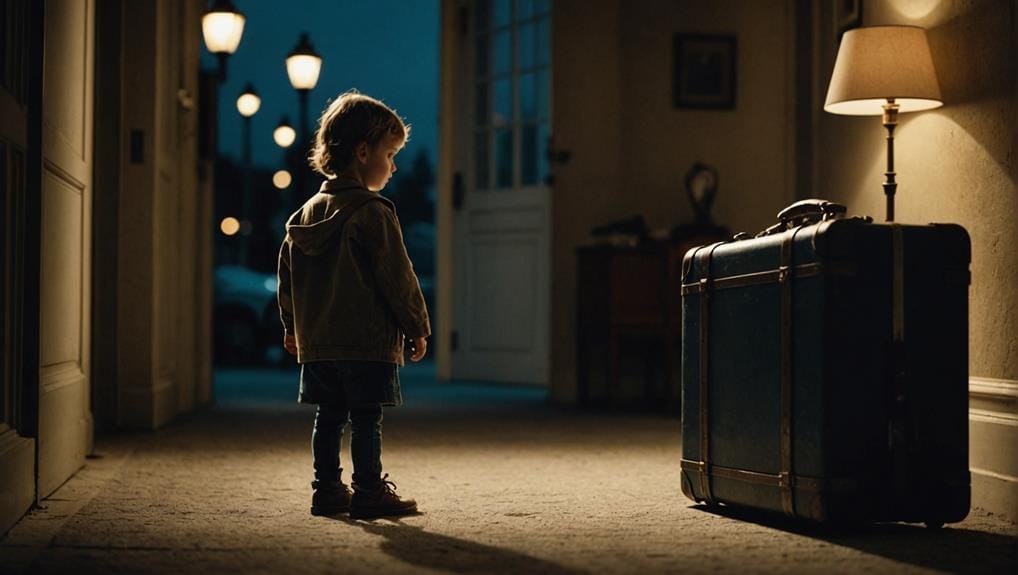
What Should I Do in Case of Family Violence or Domestic Violence?
If you’re facing family or domestic violence, it’s crucial to act swiftly. Start by contacting your local police to ensure your safety. This step is not just for immediate protection but also to establish a legal record of incidents. Think of it as laying the groundwork for any future legal actions you might need to take.
Consider obtaining a protection order or a domestic violence order. These legal tools can help keep the person causing harm away from your home, offering you a sense of security. It’s like setting up a shield around you, legally backed, to keep the danger at bay.
It’s also a smart move to consult with a family law expert. They can help you understand your rights and guide you on the best steps forward. It’s like having a navigator when you’re lost in a storm, providing clarity and direction.
Remember, you’re not alone in this situation. There are people and resources available to support you through these challenging times. Reaching out for help is a strong and brave step.
To sum up:
- Contact the police: Ensure immediate safety and start a legal record.
- Consider legal orders: Protection or domestic violence orders can provide security.
- Consult a family law expert: Understand your rights and plan the best course of action.
Taking these steps can make a world of difference. Stay strong, and remember that support is available.
Seeking a Protection Order or Violence Order
A really important step to keep yourself safe from family violence in Australia is to go for a Protection Order or Domestic Violence Order (DVO). When you head to court, you’ll need to show some proof, like police reports, medical records, or even statements from people who’ve seen what’s happened.
Having this legal backing can help make sure the person causing trouble isn’t allowed in your home. Just remember though, if they ignore the protection order, it’s considered a criminal offence, which means the police can step in and help keep you safe. Think of it like having a safety net—it’s there to support you when you need it most.
Legal Advice on Handling Family Violence Situations
When you’re dealing with family or domestic violence, it’s really important to act quickly to keep yourself and the kids safe. First off, have a chat with a lawyer to get a clear picture of what you can do. They’ll help you figure out your rights and the steps you can take. You might want to think about getting protection orders or sorting out who gets to stay in the house, so you and the little ones have a safe place to be. Make sure to jot down any incidents as they happen too – it’s good to have a record. Here’s a quick rundown:
| Step | Action | Benefit |
|---|---|---|
| Chat with a Lawyer | Have a conversation | Understand your rights and options |
| Get Protection Orders | Apply for legal limits | Makes home feel safer |
| Secure Your Home | Sort out who stays | Ensure you’ve got a stable place |
For example, if things get heated at home, having a protection order can help keep things calm. Or if you’re worried about where you’ll live, exclusive occupancy orders can help you stay put. Just remember, taking these steps can make a big difference in keeping your home a safer place.
When to Contact the Police for Assistance
When it comes to family or domestic violence, it’s super important to ring the police straight away if you’re feeling threatened or in immediate danger. Acting quickly could help you get a protection order, which might allow you to safely return home. Here’s what you can do:
- Keep a record of incidents for legal reasons, like jotting down dates and what happened in a notebook.
- Touch base with domestic violence support services—they’re there to help.
- Work on a safety plan that suits your situation, maybe by setting a secret code word with a friend for emergencies.
Stay in touch with us for any advice or support you might need.
Is Legal Advice Necessary Before Making a Decision?
Before you think about moving back into the family home after a separation, it’s a good idea to have a chat with a legal expert to get your head around what’s what. A family lawyer can shed some light on your rights and obligations, helping you make sense of any legal orders that might be in play. They can also help you weigh up any potential risks, so you can make a choice that really works for you. Having a pro on your side means you can tackle any sticky situations and feel a bit more at ease. For example, they might point out financial obligations or parenting arrangements that you hadn’t considered. It’s all about making sure you’ve got the full picture before you dive in.
When to Seek Legal Advice
Thinking about moving back into the family home after a separation? It’s often a good idea to have a chat with a legal adviser beforehand. Here’s why:
- Family violence orders: It’s crucial to know if any orders might impact your return. You don’t want to accidentally breach something and find yourself in hot water.
- Property rights: Sorting out your legal standing can stop those pesky disputes before they even start. You know, like when one person thinks they own the comfy recliner, but the other has the receipts to prove otherwise.
- Court orders and cohabitation arrangements: Make sure you’re on the right side of any agreements or orders. It’s all about keeping things smooth and drama-free.
Having a clear understanding of these points can really help you make informed choices and look after your interests. Plus, it saves a lot of stress in the long run.
Benefits of Consulting with a Family Lawyer
Knowing when to get legal advice is a good start, but figuring out why having a chat with a family lawyer can really help is the next step. A lawyer can help you get your head around your rights and responsibilities, especially when it comes to things like family violence orders or who gets to stay in the house. They’re there to help you sort out property settlements too, making sure you’re looked after. Getting advice early on can nip conflicts in the bud and help everyone find a friendly way through things, making the whole transition a bit easier. For instance, when a mate of mine went through a separation, having a lawyer meant they could agree on who took what without turning it into a drama.
Choosing the Best Course of Action for Your Situation
Thinking about moving back home after a split can be a bit daunting, and getting some legal advice can really help you steer clear of any sticky situations. It’s important to check whose name is on the property title or lease, figure out if you should actually stay in the family home, and see if there’s any order from the family court hanging about. Here’s a few things to keep in mind:
- Sorting out property rights: Make sure you know where you stand. Maybe your name’s on the lease or maybe it’s not, and that can make a big difference.
- Living under the same roof: Consider how that might play out. It might be a bit awkward at first, especially if things are still a bit raw, but sometimes it’s just the practical thing to do.
- Keeping up with legal stuff: It’s a good idea to make sure you’re not accidentally stepping on any legal toes. Getting the right advice can save a lot of headaches down the road.
If you’re not sure about any of these, having a chat with a legal expert could be a good shout. They can help you make sense of it all without making it more complicated than it needs to be.
Final Thoughts
Thinking about moving back to the family home after a separation in Australia? It’s important to get a handle on your rights and options first. Occupancy orders can play a role in your situation, so it’s good to know if you’ve got the legal right to return. Family law is there to help sort out property settlements, so getting some legal advice might be a smart move to make sure your interests are looked after. If there’s any chance of family violence, putting safety first is a must, and there are support services around to help with that. Staying informed and being careful can help you stick to the law and protect your rights.

























